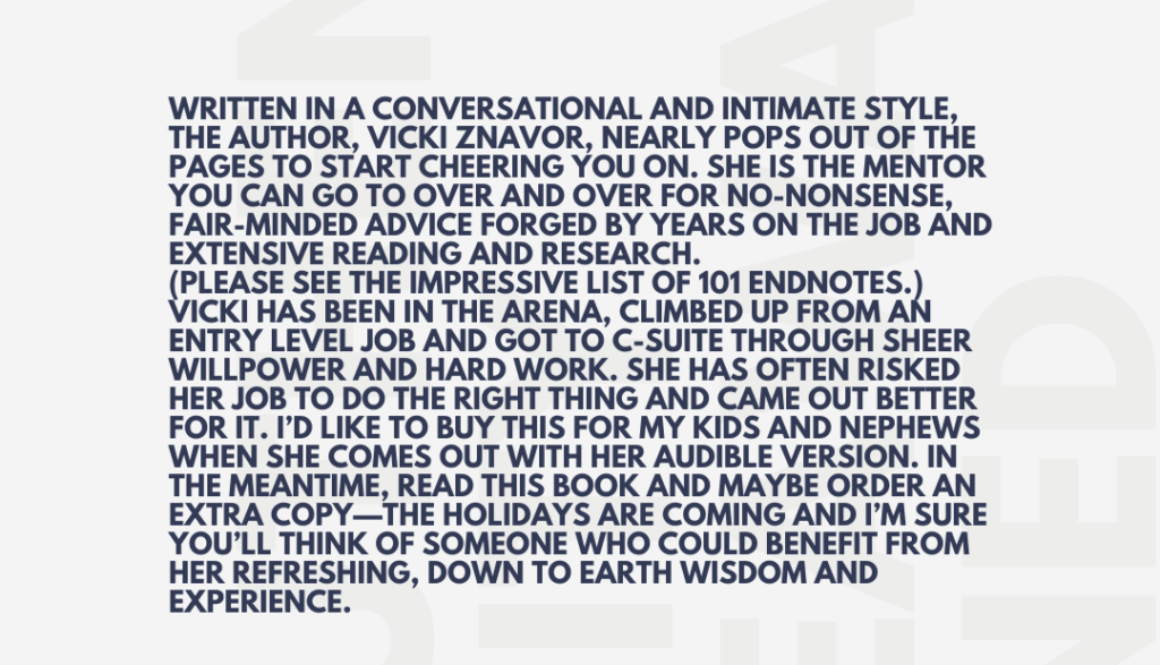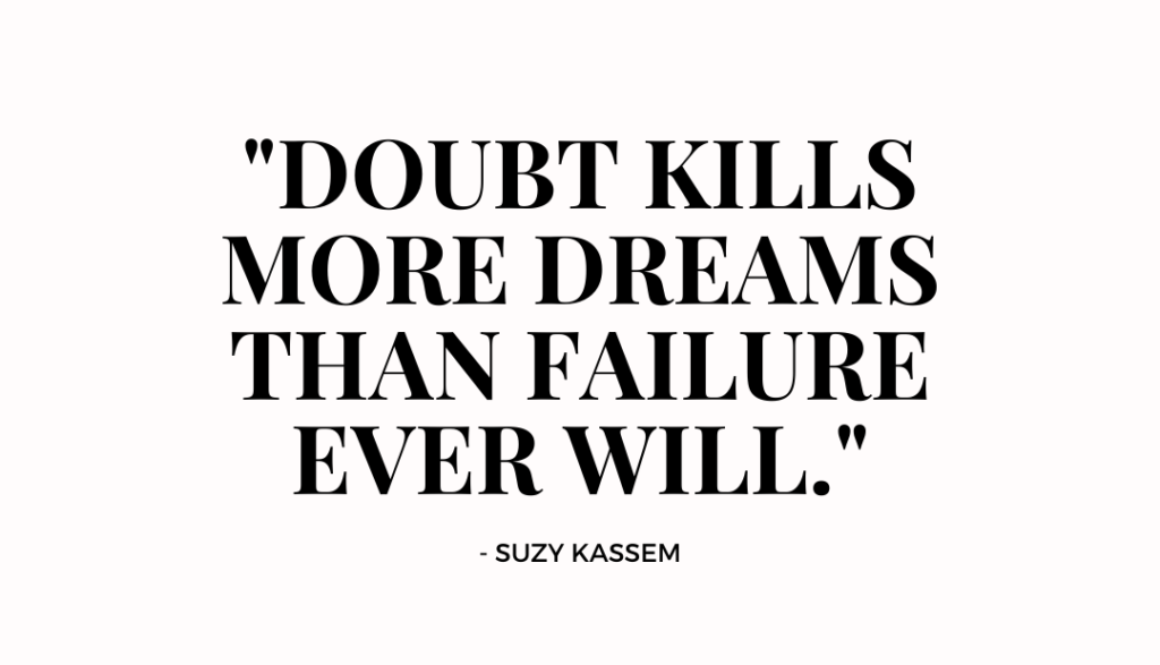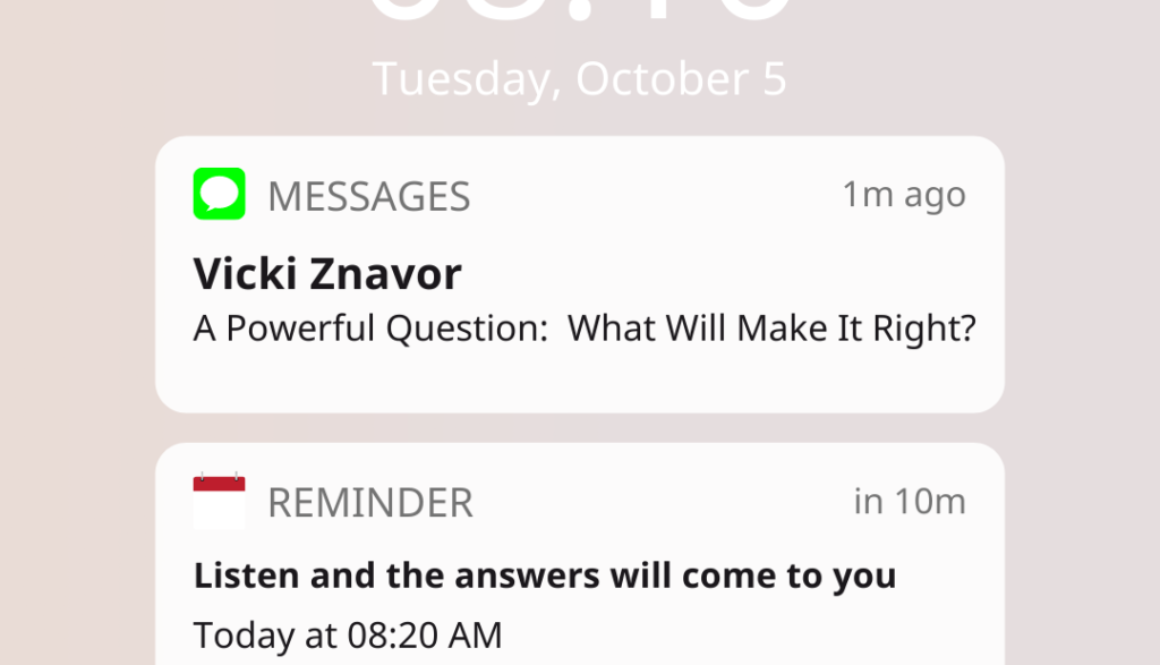As you may know by now, I spent over twenty-five years in HR. Like you, I have had countless other roles in life as well – wife, parent, friend, daughter, sister, etc. Since all these roles involve relationships with other human beings, conflict is inevitable. Of course, some relationships are filled with more conflict than others, but without a doubt conflict is part of the human experience.
Over the years, I’ve come to appreciate the power of conflict. In fact, the best-case scenario is that people disagree with each other but underneath their disagreement, they want to get to the right answer. I love collaborating with people in this way because you can feel that if you’ll just hang in there with the problem-solving effort, often asking “what will make it right?” the outcome is often better than any one person could’ve produced. In a situation like this, you can see that there’s respect for each other’s thinking and the desire to win together. I love working this way; it’s incredibly fulfilling and fun.
As great as this is, it takes confidence in yourself and your abilities to dig into work like this. When I was younger and not as confident, I thought I had to have all the answers, or my colleagues would think that I wasn’t as capable as they were. If someone suggested a different path, my first thought was “OMG, they don’t think I’m doing a good job.” When you feel like this, often you start making up stories like “I’m going to get fired!” or “my boss hates me” or something along those lines. These stories aren’t even close to being true, yet they consume a lot of our mental energy and cause unnecessary stress.
What I know now is that when you strengthen your abilities and gain confidence, you are willing to engage in healthy debate without feeling criticized. It takes time, but it happens. It’s part of maturing as a person and professional. Good managers see this in others because they remember how insecure they were at one time. They work to reassure their team members that any criticism or disagreement isn’t due to a lack of confidence, but is instead intended to bring out the best in that person’s abilities.
The kind of conflict that’s often not so easy to work through is when people simply can’t agree. This kind of conflict happens in all relationships at one time or another. When you peel away the layers, you see that someone was hurt, and they don’t know how to get past it. Often as the head of HR, people would come into my office, sharing all their grievances with great clarity and resolve because they had thought carefully about all the things that were wrong.
After listening to them, I’d ask one simple question: “What will make it right?” Without fail, I’d usually see a blank stare because they’ve been focusing on what was wrong instead of what would make it right. And yet, that’s the only way to move forward differently, isn’t it?
The principle at work here is that whatever you focus on gets bigger. If you want more conflict, keep focusing on the negative aspects of the relationship. If you focus on resolving conflict, focus on what would make it right.
I’m not going to sugarcoat things here. Sometimes the best solution is to part ways, but at least you’ve thought about why that’s the best decision for you. On the other hand, sometimes you’ll realize that you’re being overly sensitive or have contributed to the problem in some way. That’s good to know because then you can change your behavior.
So, the next time you’re grappling with a problem, shift your attention to what will make it right. Listen for the answer; your heart will guide you.
If you want to know more about addressing conflict, my book “Authenticity Reawakened: The Path To OWNING Your Life’s Story and Fulfilling Your Purpose” has a model that I call “The Intentional Compassionate Conflict Model” that walks you through and easy to follow process. I’ve seen it work countless times and I’m confident it can help you.
To get your copy or download it on your Kindle Click here
Be well!


